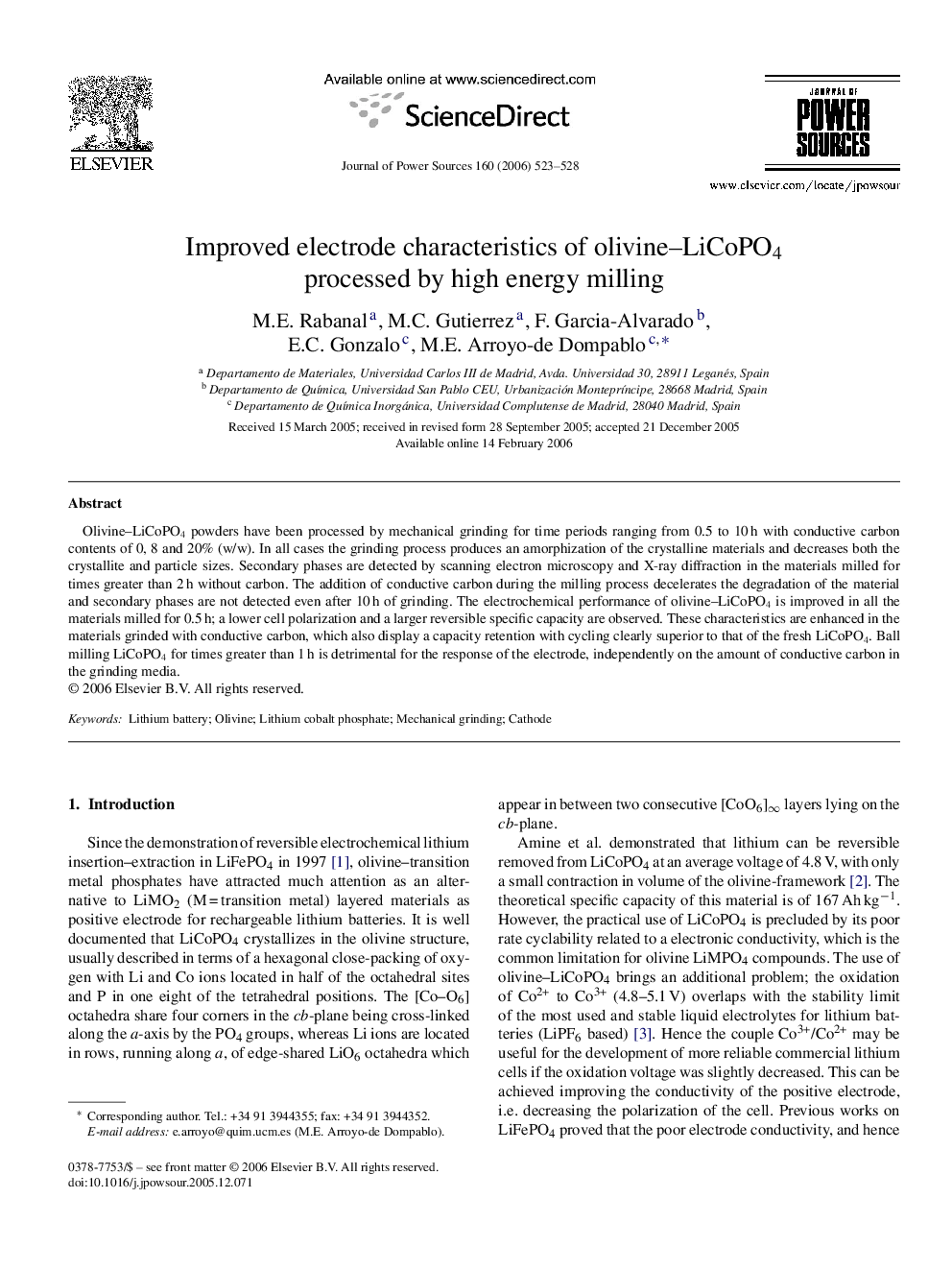| Article ID | Journal | Published Year | Pages | File Type |
|---|---|---|---|---|
| 1292287 | Journal of Power Sources | 2006 | 6 Pages |
Abstract
Olivine-LiCoPO4 powders have been processed by mechanical grinding for time periods ranging from 0.5 to 10Â h with conductive carbon contents of 0, 8 and 20% (w/w). In all cases the grinding process produces an amorphization of the crystalline materials and decreases both the crystallite and particle sizes. Secondary phases are detected by scanning electron microscopy and X-ray diffraction in the materials milled for times greater than 2Â h without carbon. The addition of conductive carbon during the milling process decelerates the degradation of the material and secondary phases are not detected even after 10Â h of grinding. The electrochemical performance of olivine-LiCoPO4 is improved in all the materials milled for 0.5Â h; a lower cell polarization and a larger reversible specific capacity are observed. These characteristics are enhanced in the materials grinded with conductive carbon, which also display a capacity retention with cycling clearly superior to that of the fresh LiCoPO4. Ball milling LiCoPO4 for times greater than 1Â h is detrimental for the response of the electrode, independently on the amount of conductive carbon in the grinding media.
Related Topics
Physical Sciences and Engineering
Chemistry
Electrochemistry
Authors
M.E. Rabanal, M.C. Gutierrez, F. Garcia-Alvarado, E.C. Gonzalo, M.E. Arroyo-de Dompablo,
